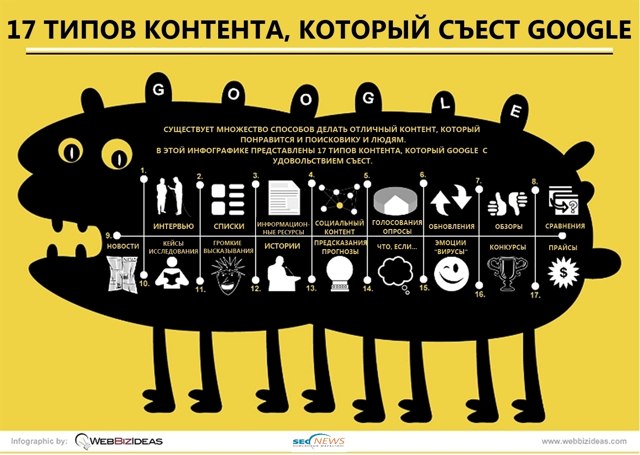Contents
How to become an author on gagadget.com? Quick guide. Author: Tekhnoslav Bergamot, February 08, 2014, 04:09
Lately, we have been asked more and more often how to become an author on our website. Many years of communication with those asking this question suggests that all of them can be divided into two unequal groups. With some, everything is simple – they know how to write texts (or think they can – this also happens all the time) and are looking for options for additional income. In the vast majority of cases, such authors are not interesting to us in principle. They are ready to write about anything, take on any job and, as a result, do not know anything that would be interesting to us. I will note in parentheses that if they can, then the work itself is looking for them, and not they are looking for it. As a rule, they ask you to come up with a test task for them. But the thing is that we are not a factory for coming up with tasks, we don’t have them. And when some interesting ideas appear, we ourselves are able to implement them (or find someone who is able to). Therefore, the question of choosing an interesting topic is as much a part of the author’s work as the creation of the text itself. And, by the way, it can take a lot of time to research the issue. Any hypothesis needs to be tested, and sometimes a seemingly “worthy” topic turns out to be a fruitless dummy.
In general, for the first group of comrades we have one simple answer – offer your completed text for publication, we will consider it. If it turns out to be interesting, we will discuss the issue of fees. If not, then no. By the way, this is a common practice in journalism, used for freelance writers “from the outside”; it has been tested not even for decades, but for centuries. Beginners sometimes fear that their text will be stolen and published without paying a penny. In practice, I have never heard of such cases. In any case, large serious sites definitely do not do this for one simple reason: it is much more profitable for a site (newspaper, magazine – any media) to pay an author's fee for an excellent text, and acquire a new author, than to save 10 (20, 50, 100 – in this case) case the sum is abstract) monetary units and receive minuses to karma. Not to mention the forever lost excellent author, who, by the way, are not lying around on the road. It is clear that the text will be evaluated based on several factors. For example, it is quite obvious that working on such and such texts requires fundamentally different efforts, costs and time. But everything can be discussed in the process, if there was a subject for this.
Therefore, if your goal is to earn a little extra money, just contact us and send your text. By the way, if you have several ideas and you don’t know which one will be the most useful, then we can discuss this in correspondence. Especially if the publication plan is supported by abstracts (what sources of information you plan to use, what applications or devices, and so on – no detail is needed, it’s enough to put it in simple words, because this is a synopsis, not the text itself).
The second group pursues different goals. These are people who dream of getting a permanent job and want to become professional (that is, earning a living from their work) journalists in our industry – information technology and communications. It is this second group that will be discussed in this article.
So, you have no experience (or you have, but very little, and you are quite rightly not confident in your abilities). But you visit relevant sites and forums regularly and a lot. Read reviews and participate in discussions. In general, in all respects, and quite rightly, you consider yourself a person “in the know.” Your entire experience of using devices consists of your own devices – smartphones and computers (laptops and tablets), as well as several devices that you may have shared with friends, acquaintances and relatives. You understand (or, conversely, you don’t understand) that this is not enough, but you are full of enthusiasm and ready to learn and go through the entire difficult stage of becoming a professional, which begins from the very bottom rung and frankly boring work that is given only to apprentices. How can we increase our chances of getting a job on our (or any other notable project)? — I would not advise anyone to work for little-known projects for two reasons: firstly, you will not learn anything useful there, especially since you will not find real professionals there; secondly, you will form a distorted perception of what such work involves, which will then be extremely difficult to correct and overcome – this will really complicate life if you want to achieve any significant success in the profession.
Here are a few things that are not obvious to newbies, but are very important to us. Perhaps somewhere they adhere to different standards and opinions – I will not say that the requirements are the same everywhere, but compliance with these requirements and following these tips will certainly make the “path to the top” easier for everyone.
Competent Russian language
It would seem – why should a website about technology bother with issues of language purity? In fact, the difference between mediocre and excellent writing lies precisely in the degree of language proficiency. For a journalist, language is a professional tool and must be mastered perfectly. The terrible truth is that it is too late to teach a person a language at the age of 18-20. If you didn’t read books avidly when you were 10-12-14 years old, you won’t see good texts, and the road to the top is forever closed. If you don’t understand why you read books at all and don’t do it regularly, it’s better to look for another profession. Otherwise, you will have to be content with second (and third) roles throughout your professional life. Competent and beautiful literary language is the decoration of any text. This is an increase in its memorability and stronger emotions from its perception. The emotional component in our work is extremely important, no matter what anyone thinks about it. Without mastery of the language, it is impossible, for example, to create a successful headline. And a successful headline in our business is, if not half, then definitely a third of success. If you are able to make not only a good title, but also an epigraph, that’s an added bonus. Well, if you don’t know what an epigraph is, or can easily confuse it with an epitaph, then this will be an epitaph on the gravestone of your work. The question of purity of language and methods for achieving it lead us to the next problem.
I don’t even discuss the issue of literacy – it must exist. In my practice, there was a case when I fired a journalist who had worked for several weeks after he responded to my remark: “Why these quibbles? Well, I made a mistake – we have a proofreader!” This was the last straw. A proofreader in an editorial office is not there to correct other people's spelling mistakes. He checks the text at other, higher levels of perception: consistency and unification of the entire text, factual verification (this could be, for example, technical proofreading), and so on. Spell checking, after all, is included in every text editor.
Speech stamps
You may not believe me, but the contamination of technology reviews with speech cliches has reached terrifying proportions. So significant that when I see them, I begin to have real vomiting spasms. Here is a very partial list of the most common cliches of speech that are stuffed with hundreds of reviews all over the Internet:
- no complaints
- made of (such and such material)
- blah blah blah on top
- acceptable price
- inscribed in
- doesn't go blind in the sun
- stand out from the gray crowd
- emphasize your individuality
Anyone who uses such cliched phrases in their texts has no chance of getting a permanent job with us. For me, these are markers that clearly interpret: what I have in front of me is initially damaged material. If we draw an analogy with a potter and clay, then this is a sign of lousy clay, from which it is impossible to make a delightful work of art, and not even worth wasting time on. And you should be interested in being seen as a diamond in the rough that can be turned into a sparkling diamond! You want to become a diamond in your profession?
If you think that it is impossible to express your thought in any other way, then you have never heard of synonyms and your language is extremely poor (see the previous point). Tell this to Pushkin. That same one – Alexander Sergeevich. Better yet, read his texts to understand what a huge insurmountable gap lies between you and him. Stamps, among other things, significantly impair the perception of the text. That's why they are called stamps, because they are used by everyone and everything. Therefore, when reading, cliched phrases are perceived as background noise, which does not leave any traces in memory and does not evoke any emotions in the reader. Your goal is exactly the opposite – to make him experience these emotions.
Where do these stamps come from? Everything is very simple – you once read them somewhere and remembered them. And instead of, as you think (or don’t think, but simply do so unconsciously) “reinventing the wheel,” you insert it into your texts. But this is not your phrase, and you did not come up with it. Therefore, for its author, it is not a cliche of speech, oddly enough, but part of the author’s individual style. Using these markers—frequently used figures of speech—specialists determine the authorship of a particular text. So the main advice about cliches is – don’t use other people’s figures of speech, create your own! And when other authors begin to use your words and phrases, be sure that you have already achieved something significant in the profession.
No slang
Another completely unobvious, but extremely important tip for beginners. Youth, professional, slang typical of certain social groups can be good and convenient for communicating with friends. It is appropriate on forums and in comments on websites. But it has no place in the authors’ texts. Therefore, burn these markers out of your texts with a hot iron! From now on, no more “devices”, “Andryush” (infuriates me incredibly), “gnusmas” and other nonsense that can be easily picked up by being a regular on the relevant forums. If it gets hard, go back to reading Pushkin, you won’t find such words in him even if you live three lives. Pushkin doesn’t help – go on to reading Leo Nikolaevich Tolstoy. This is killer artillery. And if you are able to read Fyodor, ours, Mikhailovich, and not consider the reading process a punishment for your crimes, then your language skills are already good. There is a simple “grandmother test” for the perception of texts: imagine that your grandmother is reading it. Will she understand all the words? The text should be understandable to the maximum number of readers, and not to a bunch of nerds. Nobody in the media wants authors writing for a bunch of students. But all of them are authors who can captivate an audience of thousands. Significant heights in the profession imply high standards of work. Meet them from the start.
Not reviews
As a rule, in the common view, IT journalists are people who write reviews of technology and travel around the world to exhibitions and presentations. It's just not life, but raspberries. If you achieve something in your profession, you will have it all. I can’t promise that by then you’ll be all that happy about it, but still. All newcomers immediately want to write some kind of technology reviews. But the paradox of the situation is that the media you are contacting already has such authors. And they independently solve the need for reviews of important devices. And all this should not upset you at all. If only because there are a lot of other areas and topics that are in demand and that will be of interest to readers (and therefore to the site). Here's some food for thought on what kind of content Google is interested in (in this case, cause and effect are reversed, because Google is actually interested in content that people are interested in), prepared by webbizideas.com:

As you can see, reviews are just one method out of seventeen! Just imagine the prospects that open up for you if you master not just one (like your competitors who knock on the doors of editorial offices in search of work), but several tools for work! Any site, including ours, is interested in such interviews, such lists, such comparisons, such studies, such loud statements, such stories, such forecasts, such “what if…” and such viral emotions.
Of course, no one expects beginners to make any serious forecasts (why not?), market analysis and other truly complex texts. In general, beginners need to forget the very word “analytics” as applied to the market. To do such an analysis, it is not enough to sit on forums on the Internet. You need to understand how the market works, what guides large transnational companies in their decisions, and know the specifics of their business. All this can be learned only in the process of work, communicating (regularly and a lot) with representatives of these same companies. And you will have all this if you go through the initial stage of work. But not at once. However, no one bothers you to analyze what you can really understand. For example, in games for smartphones (or even better – in some particular genre), or, for example, in applications for processing photos, videos or sound. Any useful experience can do you a favor and turn your favorite hobby into a job. But this is precisely your main goal, isn’t it? So why wait – start right now!
For those who want to know more
A year after the publication of this text, I published an article “If Ukrainian mobile operators were housing offices,” with which (there were two more) I applied for the PRESSzvanie journalistic award and won in the “Telecommunications and IT” category. But no one has ever suggested a “what if” topic after reading these tips, although this is the clearest example that our market is so meager that it is enough to put in just a little more effort than others to achieve success.
Another thing is that you (and, by the way, the editors too – in this your aspirations have a commonality, which it would be a shame not to take advantage of) are interested in regular publications. Which will give more practice, and, accordingly, more experience. Therefore, it would be more correct to take on “long-term” rather than one-time topics. And here we come to the main useful advice – become the best in a particular topic!
Digests
We all live in times when there is an enormous amount of information, and there is catastrophically little free time. And this opens up truly amazing opportunities for a beginner! If you don’t have a permanent job (and you really want to get one), then you have a lot of free time to work and acquire the necessary skills – this is a real treasure trove! You just need to know where to “dig”. But here I will help you. The lack of time for most readers leads to the fact that they are interested in digests, that is, information on a particular topic that has already been sorted by someone and presented in the most digestible form. This could be news on any topic (there is no point in doing a digest of the “main” news of the week, but for almost all other cases this is suitable).
When our site was much smaller and I had more free time, I wrote a weekly column called “Tea with Bergamot,” which featured funny videos that I came across during my daily news work. Our veteran readers still remember it very well. This is a job that does not require any specific knowledge, agree. All you need is perseverance and desire. And if you live on YouTube, then the cards are in your hands! And it’s hard to even imagine what scope for work smartphone games open up! Do you like strategy? Do you install them on your phone in batches and have a good understanding of what is good and what is bad, as well as when new items will be released? This is a real wide open gate to enter the site. (Provided that the previous conditions are met – first of all, competent language).
App Reviews
Everything is quite simple here – choose one highly specific topic, and become the best in it. In this case, the best one is the one who writes faster, more carefully (with attention to detail – you shouldn’t be lazy if you want to make a favorable impression on readers and your future employer) and more interesting (living, non-boring language, again, gives an advantage).
Collections of all sorts of things
To talk about something interesting, you don’t have to review it. The Internet is full of all sorts of unusual things and gadgets that attract attention with their unusualness. The main thing is to find them. Tip: There are plenty of online stores for this, like ThinkGeek. By the way, he is far from the only one. Choose one topic (gadgets related to Star Wars or StarTrek, or something else interesting to technology lovers). Much of this work is research. And this is an integral part of journalism, if anything. It is in such studies that the necessary work skills and long-awaited experience are formed. Not to mention the positive impact on one’s own karma – after all, such texts bring a lot of pleasant sensations to readers. And reader satisfaction is what we truly strive for.
If / idea is a virus
About 10 years ago there was a wonderful text circulating on the Internet: “ If mobile operators sold sausage ” – it is still not difficult to find in search engines. If you have a great sense of humor this gives you a huge advantage! Draw other parallels, find some other interesting comparisons with technology. And your text will spread across the Internet like wildfire in a hot summer. And you will wake up famous in the morning, who knows?
For the first lesson, perhaps, there is enough information. I will be happy to answer your questions in the comments. In the meantime, here is a list of useful books on the topic:
- Leonid Bershidsky. Craft.
- Alexander Amzin. Online news journalism. (For free)
- Nora Gal. The word is alive and dead. (For free)
- Stephen King. How to write books.
- Look on the Internet for a document called “Dogma” created by the business newspaper Vedomosti – there is nowhere to give a direct link to it, but you can always find it on the Internet. Be sure to read it.
Good luck in learning your profession! The one who walks will master the road.
PS Since the text is of an applied nature, I delete all comments of aggressively minded comrades, and ban comrades with a registration date that coincides with the date of publication of the comment. If you want to express any complaints to me personally, create a new discussion. If you have questions regarding the work of journalists in general and our website in particular, leave them here.
PPS Perhaps it’s worth updating this post. Here, for example, is an example of a typical discussion with, as they say in near-fiction circles, a “young talented author.” He read this text, but did not draw any conclusions. Such people who are trying to simply sell their shoddy work and get some money for it are not needed even for free, they only do harm to the project. There is a lot of pathos (“who can I talk to” hints at “give me your most important Internet director”), demagoguery and using concepts that one does not understand (about genres of journalism), and so on. From such examples you can learn well what not to do, if, of course, you want to learn something. Although if your goal is simply to make money, there is no point in doing that either. Simply because not a single serious project will bring such a discussion to the fee stage. The “professionalism” of a freelancer will be visible long before that. Just like in this case, actually.



